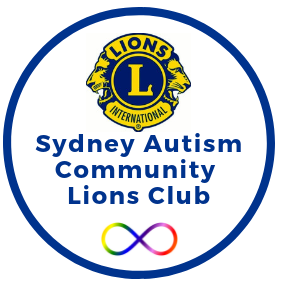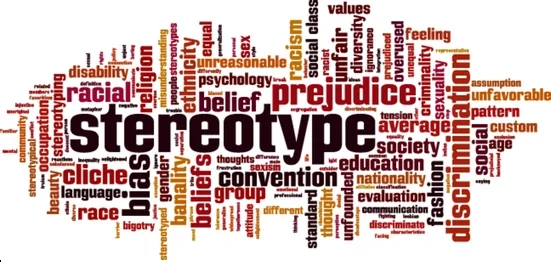Living on the flip side of a stereotype is an experience that is difficult to describe. While there are stereotypes about everything – white people can’t dance, lawyers lack a moral compass, dog lovers are more friendly than cat lovers – the most impactful ones are those about minority groups. I am part of multiple minority groups, and so I’ve been ‘lucky’ enough to face innumerable generalisations about who I am. Ever since I can remember, I’ve always tried to break every stereotype that applies to me to prove that I am different from all those expectations, ready to swing my metaphorical sword at the next one that comes my way.
It started with small things in primary school, where I’d always volunteer to lift heavy classroom equipment as if to demonstrate that being a girl doesn’t mean I’m weak. I was intent on being ‘not like other girls’, and I maintained a disdain for cosmetics and pink things that persevered into my adolescence.
As a young Indian woman, I face the stereotype that I’m a submissive rule follower with overbearing parents who cannot stand up for myself. Hence, as a teenager I made sure I came off as headstrong and opinionated, to crush any assumption that I’m ‘submissive’.
Even now I have to confess to people that I’m vegetarian and quickly follow it up with a reassurance that I don’t fit the tree-hugger, fun-hating, moral high-horse riding, judge-y stereotype that so many people expect me to be.
Years of living with these left me insecure about every judgement that I received just for existing, and I was barely keeping afloat with the number of assumptions that I spent hours re-directing or disproving every single time I was around other people.
And then I got diagnosed with autism. This instantly raised a series of questions.
When do I tell people I’m autistic? And when I do, what will they assume about me? Will they think I don’t have feelings,or that I can’t care about others?
Do they think I have no sense of humour? No social skills? How do I stop them from thinking these things?
If I ever have to tell people I’m autistic, I feel like now I have to immediately prove that I still have decent social skills, and a healthy sense of humour. I have to make an effort to prove that I’m independent and fully capable of looking after myself to dispel the image of autistic people is that they are unable to function in society.
I also feel the need to prove that I’m not Rain Man, or Sheldon Cooper, or Sherlock Holmes, or anything like those typical characters who are geniuses and yet can be complete assholes to everyone around them.
A lot of these directly contradictory stereotypes I was already faced with: autistic people are meant to be good at maths while being rude, but women are meant to be bad at anything technical while being pushovers. Autistic people are meant to be asexual, but queer people are meant to be promiscuous. In disproving one cliché, I’d end up reinforcing another.
The whirlpool of stereotypes ultimately became too strong for me to fight. I hid my autism diagnosis from anyone who wasn’t close to me. I went back into the closet about my sexuality around everyone except than other queer people.
The hardest part of all of this is that because I had gone undiagnosed throughout my adolescence, I internalised all these ideas about autism myself. I can’t even blame people for having these impressions about an autistic person, because until now, I didn’t know any better either.
Because I’m autistic and didn’t pick up social cues automatically, I learned about the world through media and observing people. I learnt the social scripts and the opinions I’m meant to mirror in order to fit in. Every TV show, every person I’ve spoken to, provided raw data that I used to deduce how I should behave and what I should assume about other people.
I understand the stereotypes, and can’t blame people for having them. This is also why I assume most people make these assumptions about me, because I know for a fact that I used to hold those same assumptions. So where does that leave me?
This is the struggle of being someone who is stereotyped so often. People often claim that stereotypes aren’t that hurtful, or that subtle discrimination is harmless and barely an issue in today’s society, but this is just a small glimpse into the mental chaos that this assumption causes for someone like me. It hurts me every time someone laughs at a stereotypical character in a TV show, or makes a comment about how autistic people “really don’t have social skills, poor things”, or if a sexist joke made by a colleague is ignored.
The truth is that I do have a lot of ‘stereotypical’ characteristics, but in my efforts not to be defined by them I end up trying to hide them. I’m confused about what parts of my are my true personality and what parts of me are a mask made to prove people wrong.
Truthfully, I’m probably a mixture of both.
As I get older I’m becoming more self aware about how conscious I am of these stereotypes, and consequently shedding the burden of proving them wrong. I need to be a person who stops caring about the assumptions people might have about me, in order to go forward and be the person I actually want to be.
I’m still figuring it all out, but one day in the future I’ll be able to look back at all this paranoia about being or not being a stereotype, and laugh.
IMPORTANT NOTE:
If you’re reading this and you’re autistic, please know that a lot of this is my own paranoia. Most people who’ve ever met an autistic person won’t have any of these negative assumptions. They’ve also been more likely exposed to awareness events which taught them to be more open minded.
Additionally, most people whom you meet soon realise that any assumptions they had aren’t true, so even if they did believe the stereotypes before, that impression is not long lasting. I’m writing this solely to express and explain the paranoia I feel, so that anyone else who relates to it can feel less alone.
There’s also the added benefit that maybe non-autistic people reading this will understand and be less likely to ask ignorant questions or perpetuate myths based on stereotypes.
Medha Gupta is the Treasurer of the Sydney Autism Community Lions Club.

